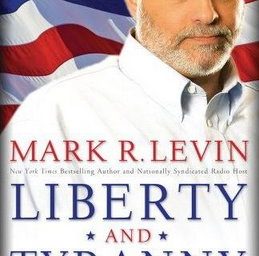A Simple Example of Constitutional Interpretation
Constitutional interpretation is easy, right?
 Thanks to Ezra Klein, Constitution Day has come early (or perhaps late) to OTB. Both James Joyner and Doug Mataconis has weighed in today, but let me add the following to augment the discussion.
Thanks to Ezra Klein, Constitution Day has come early (or perhaps late) to OTB. Both James Joyner and Doug Mataconis has weighed in today, but let me add the following to augment the discussion.
Consider the First Amendment:
Congress shall make no law respecting an establishment of religion, or prohibiting the free exercise thereof; or abridging the freedom of speech, or of the press; or the right of the people peaceably to assemble, and to petition the Government for a redress of grievances.
There is quite a lot in there to be sure and an initial and casual reading makes it seem perfectly straightforward. However, to start with one example, the exact meaning of the word “establishment” has been an issue of major debate, especially over roughly the last century.
Setting that observation aside, let’s consider the following: “Congress shall make no law…abridging freedom of speech.”
It is hard to be clearer than that, yes? And yet, it has proven to be less clear than a plain reading would suggest. What about slander? What about the Heckler’s veto (e.g., if the biologist down the hall wants to come into my classroom and shout “blah blah blah” at the top of his lungs for 50 minutes while I am trying to teach my political theory class, ought he be allowed to do so? It is speech, after all.) What about pornography? How about child pornography? How about the ever popular yelling “fire” in a crowded theater? Inciting violence? Should a soda manufacturer be allowed to claim that Sprite cures cancer? I won’t even get into the question of how the 14th Amendment leads to the application of the 1st Amendment restrictions to state and local governments as well.
All of the above have required interpretations by courts and congresses over the decades and often with a great deal of controversy. Indeed, some of the above remain topics of controversy and/or remain incompletely settled issues.
And if we need an example of how the Framers’ fully understood the Constitution in a way that can settle our understanding once and for all, it is worth noting that early on that the 5th Congress passed the Alien and Sedition Acts. Yes, they were soon repealed, but the very fact that they could be passed in first place underscored that even in the 1790s there was a far from perfect consensus regarding the precise meaning of constitutional passages.
If we start talking about freedom of the press we have some similar issues (like libel) but also also the issue of how to apply the clause to situations that the Framers could not have anticipated, specifically radio, broadcast TV, cable TV, satellite TV and radio, and the internet.
So, yes, constitutional interpretation, even with seemingly clear passages with straightforward language, is far more complicated than many seem to think.






To paraphrase Inego Montoya from the immortal “The Princess Bride” – I don’t think that means what you think it means….
Yes, consider the First Amendment. It is clear and straightforward as you suggest. If a Constitutional Convention were to convene in the future, how would you word The First Amendment to say the same thing in one paragraph without changing the basic meaning? Post it here for our clarification and edification.
And what about the Second Amendment? Rewrite it to eliminate the confusion without taking away the right of citizens to own firearms. Post it here for us.
Could a Constitutional Convention succeed in an overhaul of the Constitution? No. Especially since we can’t agree the meaning of the original version of the First Amendment.
“constitutional interpretation,…is far more complicated than many seem to think. ”
The problem is that many just do not think very much. They react, and, of course, they love to jump in and take cheap shots at political opponents.
Seems pretty cleat that that is what happened here. Some far right bloggers who hate Ezra Klein thought they had a hook by which to ridicule him, and lots of other wingers jumped into the pool. I seriously doubt any of them engaged in any real thought about the issue.
Actually the entire legislative branch has been a fraud for many years. It is illegitimate!!! The laws it passes can be — indeed must be — ignored!!!
Oh, you don’t think so? Well then how do you explain this: it’s clearly Congrefs, not Congress!!!!!
Did you miss the point of that? No doubt you’ve been the victime of a so-called educational system run by leftist liberal teachers. Well get your head out of Keith Olbermann’s butt and read the actual constitution. Line #1 my friend:
C-O-N-G-R-E-F-S. You see a Congress there?!?!?!? No.
I will no longer be bound by any act of the illegitimate so-called “Congress”! No longer will I pay taxes, obey admiralty law or inspect my meat.
Your point is well taken, the Constitutition is no document for a stupid people, or a nation of babelspeak, newspeak, or spanglish. It now all depends on what your definition of is…is.
A good lawyer can show you how complex a simple law really is.
A brilliant lawyer can show you how simple a complex law really is.
“A brilliant lawyer can show you how simple a complex law really is.” when you want to circumvent it.
Steve
Fortunately, lawyers much more brilliant than I have tackled the issue and there is simplicity at the core of the complexity. That does not mean it is easy to reach it and it certainly does not mean it is easy to apply to the real world.
I stand by my point made in a previous post on this issue — the courts and elections are perpetually, appropriately, and inevitably the principal forum in which the difficult nuances of Constitutional interpretation are to be played out. The basic theoretical tension debated between James Madison, John Jay, and Alexander Hamilton on the one hand and George Clinton, Robert Yancey, and Mercy Otis Warren on the other remains alive and well today — where ought individual autonomy and liberty end and legitimate governmental power begin?
It’s a balancing act. While it’s not clear what original intent was, we can be confident of one thing that original intent was not — that the balancing act between the power of government and the liberty of the individual ever be considered finally resolved. We need robust individual liberties. We need effective government. Inevitably, those needs compete with one another and cause tension. We are supposed to argue and debate and reach compromises to resolve those tensions, and then to continually revisit these issues to make sure we don’t overbalance to either the side of anarchy on the one hand or to the side of tyranny on the other.
Nuance and compromise may not be as much fun as calling your opponents the degenerate enemies of all humanity, and demanding a once-and-for-all resolution and in particular one that your side suggests. But if we would truly and honestly emulate the Founders, then nuance, compromise, and continuous debate is where things have to wind up. Fortunately, for all the shouting and all the tears and distrust, that’s still more or less what, eventually, we actually do.
The document was not designed to be interpreted by lawyers. If you cannot or do not understand what establishment is or means, get a dictionary. The section of the first amendment dealing with religion was to guarantee freedom of, not freedom from, religion. Henry the VIII established the Church of England when the Pope would not approve a anullment of a marriage he wanted out of so he ESTABLISHED his own chruch and made
Catholics illegal. As both were Christian, it is not about a belief in God or Jesus but rather how one gets there. Like Shakespeare said, Lawyers are the problem. He had a solution.
Define press.
Steve
“The section of the first amendment dealing with religion was to guarantee freedom of, not freedom from, religion.”
Somebody apparently never read *anything* Jefferson wrote. Without freedom from religion there can never be freedom of religion.
I welcome the rights insistence on constitutional originalism and look forward to their support for disbanding both the marines and air force (neither of which have a constitutional basis) as well as clarifying that they know that political contributions are not and never were “speech.”
So Zels — Since the first amendment ONLY means that the government can’t estabiish a church, I guess that means that Obama could push through a law making it illegal to worshp Jesus, right? I mean, that is your interpretation…
Tlaloc;
The assinine concept that one has a right not to share the world with those with religious beliefs, is in fact only the dogma of the religion of secular humanism.
While I believe that the first amendment denies the state the right to establish a state religion
I don’t think that the mere public expression is establishment, nor do I think that either of us has the “right” to have our sensibilities coddled.
The left has long based it’s progress on the latter, while intentionally being as offensive as possible to others, all in the bogus name of tolerance, inclusion and diversity.
All judgements of right and wrong are religious in nature and most laws are based on that presumption, so while we may choose to separate church and state, it is impossible to separate religion from civics.
You would benefit from reading Jeff Golstein over at Protein Wisdom. I think the meaning is perfactly clear. It is the Orwellian obfuscation of language to make it mean whatever those in power want it to mean that is the problem.
But I digress.
Perfectly. Sorry.
@Charles: I fear I am not clear on what you are saying is perfectly clear (i.e., are you responding to me or to one of the other posts?).
And yes, I am familiar with Jeff, but must confess I got tired of his shtick some years back.
Nonsense, secular humanism is not a religion in any meaningful sense and most people that are both secular and humanists have little problem living alongside religious people. Unlike a religion there is no unified dogma. The idea of secular humanism as a religion is a fabrication of religious people that want to push their religious views in schools and other public institutions. Defining secular humanism broadly when they want to include evolution etc and narrowly when looking for other things they find offensive to their religious sensibilities (see above quote).
Beyond ridiculous. To believe this requires either enormous blinders of a definition of religion so broad as to make it meaningless.
> All judgements of right and wrong are religious in nature
Hmm. My Father was an atheist, he did a pretty good job of teaching me right from wrong.
You’ve said a lot of silly things Floyd, but that may well be the champ.
Peanut gallery;
You boys sound like Miss Offmore! [lol]
@Charles
” I think the meaning is perfactly clear. It is the Orwellian obfuscation of language to make it mean whatever those in power want it to mean that is the problem.”
And we’re directed to that great constitutional scholar, Jeff Goldstein, who quotes this from John Adams:
That would be the John Adams who signed the Alien and Sedition Acts into law — evidently the First Amendment was not all that clear to him or the 5th Congress.
“I don’t think that the mere public expression is establishment”
If teh public expression is sponsored by the government or in any way supported with tax dollars then you’re simply wrong. If you want to have a public square that is open to all religions without any public support then that’s fine but that can’t work because the moment a satanist display goes up next to a nativity the christians will freak out.
See there are in fact religions that refuse to play nicely with others but secular humanism (even if you want to call it a religion) isn’t one of them. Christianity on the other hand has a long long bloody history of oppression, witchhunts, and absorbing local religions. The first amendment is there in significant part to protect us from that tendency of barbarism. It is in large part freedom from religion.
Tlaloc;
You’re simply wrong….. now we’re even! (LOL)